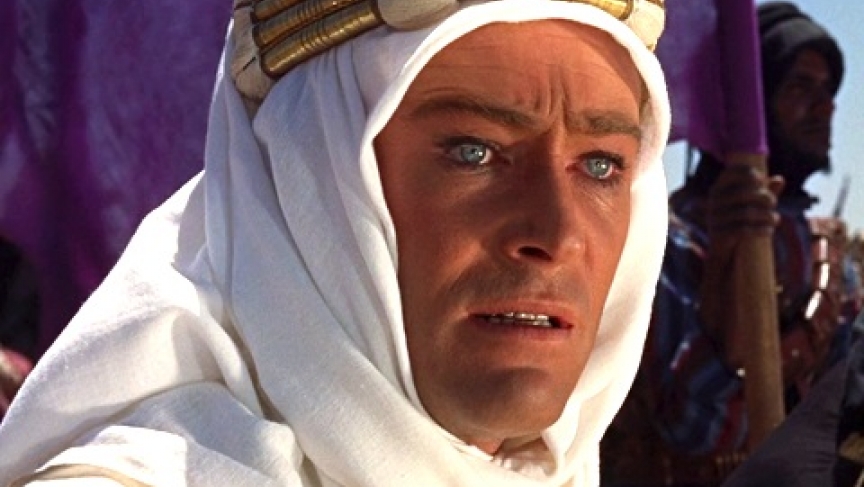
The recent death of actor Peter O’Toole has renewed some interest in the real life character portrayed in his greatest role, that of T.E Lawrence in the film Lawrence of Arabia. O’Toole not only looked like a virtual double of T.E. Lawrence, but the film about how the Middle East had developed into its modern form had educated generations of those interested in the region. In modern times, many opinions on the region have taken on a very divisive tone, where people who discuss any political issues regarding the Middle East take a very passionate and personal attitude towards most issues in the region.
While it is well understood why locals in the region would have a passionate response surrounding issues in their own communities, many people who live outside of the region and have little connection to the Middle East take the stance of having an opinion worthy of those who live there or of someone who has dedicated their life to the study of the region. Discussions where everyone has differing accelerated viewpoints and all claim to have a diverse breadth of knowledge and personal connections to a place they may in fact know little about has created a deadlock surrounding open and fair debate about the region. The Middle East is unique as issues in that region can affect many outside of the region, but is also very unique in that attitudes from abroad create a great deal of pressure inside of the Middle East. It is the part of the world that requires a more respectful level of openness and education in order to resolve the core issues, as a divergence of opinions on the Middle East can often lead to a situation where coercion is the result of ideas, ideologies that can lead to the death of innocent people, even ideas coming from abroad.
Whether the issues in the Middle East affect Persian or Turks, Arabs or Israelis, Armenians or Copts, many groups in the region are well read, well educated, and are very capable of speaking on their own behalf regarding issues affecting their personal lives and nations. Lawrence of Arabia is perhaps one of the few movies that can claim to paint a historically important portrait of how foreign powers play a role in a region, showing a European/American reflection of their recent past at the time. Lawrence of Arabia is a reflection on the modern conflict resulting from foreign political goals that had affected one of the most ancient cultures on earth, and contribute to modern debates on how the future of the Middle East may develop. While not perfect in its interpretation of the life of T.E. Lawrence, modern amateur debaters on the Middle East should use it as a useful starting point to discussing historical issues in the region.
A complicated topic to address, Bernhard Zand, a writer for Spiegel Online has published a recent piece on how the First World War and the fall of the Ottoman Empire and division of the region by the British and French authorities at the time created many of the problems present in the non-established parts of the Arab Middle East. While Egypt was always one contiguous state, as was Persia, countries like Syria, Lebanon and Iraq were established by colonial powers after the fall of the Ottoman Empire, an empire that had ruled the region for hundreds of years. Zand seeks to explain why a country like Syria can erupt into violent conflict in a manner that Arab Egypt or Persian Iran avoids. Countries like Egypt and Iran were not pieced together by European powers at the end of the First World War. Being a historically stable region of the Middle East is a reality Syria was not able to maintain, with different religious, political and elite powers cutting themselves to pieces as did many of their ancestors pre-Europeans and even pre-Ottoman. Much discussion in the article and from comments detail various reasons why the European Colonists maybe cannot hold all of the blame for present issues in the Middle East, as the amount of time present in the region was limited and conflict in the region has existed for a long period of time. While there is no direct answer, the article by Zand is a healthy contribution to a debate that will last as long as there is a Middle East present on earth. In a region where all truths are often seen as lies, information and respecting opinions of others is a welcomed change from the current debates that have led to nothing more than an Arab Spring caught in winter.